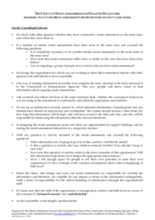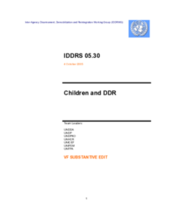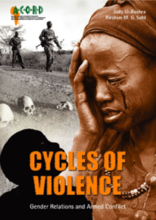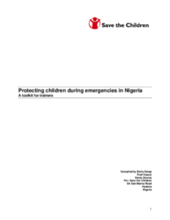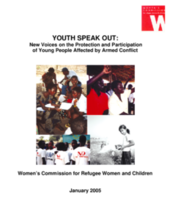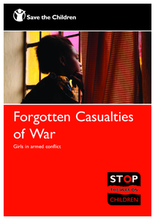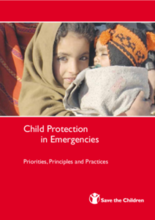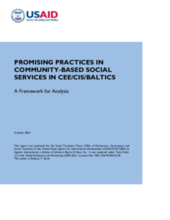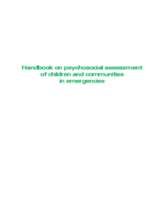Displaying 471 - 480 of 532
Lists ethical “do’s and dont's” specific to Consultants/Advisors, Managers/Supervisors, and Field-Level Workers arranging and conducting Needs Assessments in disaster situations.
Guidance on planning and implementation of child-specific disarmament, demobilization and reintegration (DDR) programming in a peacekeeping environment. Includes definitions, roles for child protection agencies, and key programming considerations on prevention of recruitment.
Examines the impact of war on gender relations. Discusses the role of gender relations in creating conflict.
A comprehensive training toolkit for organizations and individuals who are directly involved in child protection and welfare during emergencies. Covers key topics related to children in emergencies, and includes learning points, classroom and field exercises, suggested itineraries and handouts.
Discusses specific steps to expand on policy guidelines for youth protection and care. Includes list of additional practical resources.
Examines child protection issues for young girls associated with armed groups. Provides comprehensive policy recommendations.
Overviews the results from a workshop addressing child protection issues surrounding child collaboration in the Occupied Palestinian Territories.
A twelve page policy brief that outlines Save the Children's position on the type of protection children need in an emergency. Contains some statistical information.
Provides a framework for analysis of community-based social welfare services and linkages with government structures. Includes analysis of alternative care provision, de-institutionalization, programming for children with disabilities, standards of care, and overall social welfare sector reform.
A guidebook focusing on the assessment to be conducted when an emergency first hits or just after a major event in an armed conflict. Outlines the preparation needs of an assessment team and describes what an assessment should concentrate on.

